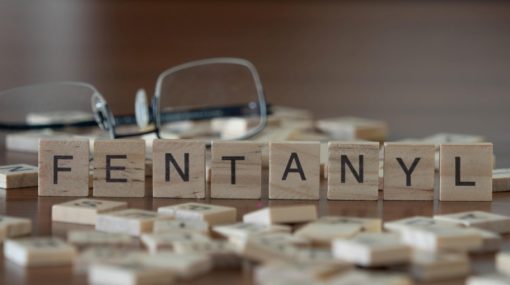Drug and alcohol addiction treatment occurs in two main settings: inpatient and outpatient. Comparing inpatient vs. outpatient allows you to decide which treatment setting is best for you, based on factors such as cost, intensiveness, severity of your addiction, the presence of co-occurring disorders, and more.
Inpatient vs. Outpatient Treatment
Once you’ve decided to commit to rehab, you’ll need to decide whether you want to attend an inpatient or outpatient program. Your doctor, therapist, or other qualified treatment provider can always assess you and your substance abuse before referring you to an appropriate treatment setting. But you may still want to do research on your own to discern which treatment type is the right fit, based on your individual needs.
Here is a quick overview of inpatient vs. outpatient rehab:
- Inpatient addiction treatment involves living at the facility for the duration of your program.
- Outpatient rehabs involve attending therapy or counseling sessions at a clinic during the day and then returning home during non-treatment hours.
If you need help during your search for treatment, don’t hesitate to call our confidential helpline at 800-908-4823 (Who Answers?) to speak to a treatment support specialist about your options.
Inpatient Rehab
Inpatient treatment for substance abuse allows you to separate yourself from your drinking or drug-using environment to focus solely on your recovery. Inpatient rehabs are often located in peaceful or serene environments for a calm, distraction-free recovery experience.
Types of Inpatient Treatment
Inpatient treatment is a broad category referring to residing at the facility during the treatment program, but there are several types of programs within this category, including:
- Hospital-based inpatient: These types of inpatient facilities are the most intensive option, providing 24/7 medical supervision, a variety of therapy sessions, and recreational and therapeutic activities.
- Residential treatment: These programs tend to be long-term (several months or even a year) and more closely resemble a home-like environment. You still receive medical care and monitoring but to a lesser extent than a hospital-based inpatient program. These programs, which include therapy and counseling, rely heavily on the social benefits of living with other sober individuals.
- Luxury treatment: You receive the same therapeutic interventions as an inpatient program except at an upscale facility that values comfort and high-end amenities, such as gourmet meals, horseback riding, massage therapy, and more.
- Executive treatment: These inpatient programs resemble luxury programs in their upscale offerings but also include work-specific amenities like high-speed internet and private workspaces.
- Holistic treatment: Holistic programs combine evidence-based treatment modalities with holistic and complementary interventions, such as meditation, yoga, and creative arts therapy, to heal the whole person.
Keep in mind, most insurance plans provide at least partial coverage for standard inpatient treatment programs, but they may not cover luxury or executive treatment programs. Be prepared to pay a relatively high out of pocket price for these upscale rehabs.
Call 800-908-4823 Toll Free. Privacy Guaranteed. No Commitment.
Help is standing by 24 hours a day, 7 days a week.Features Offered at Inpatient Care
Although every treatment program differs in its approach and offerings, most inpatient rehabs offer:
- Medical detox services: The first step on the continuum of addiction care, medical detox keeps you safe and comfortable during withdrawal and helps you achieve a medically stable, substance-free state. This is often recommended for people struggling with an addiction to alcohol, benzodiazepines, or opioids.
- Individual therapy: Many therapies, such as cognitive-behavioral therapy, dialectical behavior therapy, and motivational interviewing, may be used to help you obtain and maintain sobriety. These therapies may help you learn coping skills, how to recognize and avoid triggers, and to better understand the reasons you use substances.
- Group counseling: Group counseling sessions offer a safe space to practice drug refusal strategies, to learn sober social skills, and to re-enact events from the past that may have contributed to substance use.
- Family therapy: Family therapy addresses family dysfunction caused by substance abuse, trauma, and mental health conditions and aims to heal broken relationships and improve family communication and conflict resolution.
- Addiction treatment medications: FDA-approved medications for opioid addiction and alcohol addiction may be administered and monitored, if applicable. These medications may include methadone, buprenorphine, Suboxone (buprenorphine/naloxone), naltrexone, acamprosate, and more.2
Benefits of Inpatient Treatment for Addiction
When you choose an inpatient treatment program, your stay will last anywhere from 30 to 90 days—occasionally your program may last longer, if needed. This may sound like a long time to be away from home, but research has shown that longer treatment stays are associated with better treatment outcomes.1
Other benefits of inpatient treatment include:
- A distraction‑and trigger-free environment allowing you to focus on your sobriety
- The opportunity to meet new sober friends in an immersive treatment setting
- Receive 24/7 treatment, care, and supervision
- A highly-structured daily routine with a variety of therapies and activities
Outpatient Addiction Treatment
When comparing inpatient vs. outpatient rehab, outpatient addiction treatment programs are certainly the more flexible option. You can continue fulfilling major obligations in their life, including childcare, pet care, and working while recovering from your addiction. You can attend individual and group therapy and drug education classes during the day, when it works best with your schedule. However, outpatient treatment programs tend to have a higher drop-out rate than inpatient programs, so you will want to find a way to stay motivated, whether that includes attending Alcoholics Anonymous (AA) or Narcotics Anonymous (NA) meetings for peer support or relying on your support system at home.
Types of Outpatient Rehab
There are several types of outpatient treatment programs, which range in intensiveness and time commitment, including:3,4
- Partial hospitalization programs (PHPs): The most intensive and structured outpatient type, PHPs, also known as “day treatment,” include four to six hours of treatment per day, for at least five days a week.
- Intensive outpatient programs (IOPs): A step down from PHPs, IOPs include at least 9 hours of treatment per week, spread over three to five days, although some programs may go up to 30 hours per week, based on your treatment needs.
- Standard outpatient: The least intensive option, standard outpatient may involve therapy for a few hours per week, one to two days per week. This option is best for someone with a mild substance addiction or someone who has already completed inpatient care and is attending therapy as a form of aftercare.
For help finding an inpatient or outpatient rehab program, call our 24/7 helpline at 800-908-4823 (Who Answers?) to speak to a knowledgeable and caring rehab support specialist.
Outpatient Treatment Features
Like inpatient programs, features may vary among outpatient rehabs; however, some of the most common therapies utilized in outpatient settings include:5,6
- Cognitive-behavioral therapy: You learn to recognize the connection between your thoughts, feelings, and behaviors so you can use your cognitions and emotions to influence abstinent behaviors. You also learn how to recognize and avoid triggers as well as helpful coping skills.
- Contingency management: You receive tangible rewards for staying drug–and alcohol-free, which reinforces future abstinence.
- Multidimensional family therapy: This type of therapy was created for teens and their families as a way to improve family functioning and address underlying factors motivating substance use.
- Motivational interviewing: A short-term therapy aimed at increasing patient motivation, readiness to get sober, and desire to enter treatment.
- Matrix Model: Primarily used to treat stimulant addiction, the Matrix Model consists of group and family therapies, drug education, drug testing, relapse prevention, and self-help classes.
Call 800-908-4823 Toll Free. Privacy Guaranteed. No Commitment.
Help is standing by 24 hours a day, 7 days a week.Benefits of Outpatient Care
Although outpatient treatment doesn’t offer around-the-clock care, it does have many benefits, including:
- Minimal disruptions to your daily life
- The freedom to continue working, attending school, or meeting other responsibilities
- Lower cost than inpatient
- Longer duration of treatment, if needed
- Ability to remain close and connected with support network
While outpatient rehab has many advantages, one disadvantage is exposure to stressors and substance-using triggers in your daily life, which could lead to relapse. Outpatient treatment is best if you have a milder substance addiction and have plenty of emotional support. Call our helpline at 800-908-4823 (Who Answers?) if you’re ready to take the next step toward a healthier, happier life.
Resources
- National Institute on Drug Abuse. (2018). Principles of Effective Treatment.
- National Institute on Drug Abuse. (2014). Addiction Medications.
- National Institute on Drug Abuse. (2014). Treatment Settings.
- Center for Substance Abuse Treatment. Substance Abuse: Clinical Issues in Intensive Outpatient Treatment. Rockville (MD): Substance Abuse and Mental Health Services Administration (US); 2006. (Treatment Improvement Protocol (TIP) Series, No. 47.) Chapter 3. Intensive Outpatient Treatment and the Continuum of Care.
- National Institute on Drug Abuse. (2019). Treatment Approaches for Drug Addiction DrugFacts.
- National Institute on Drug Abuse. (2018). The Matrix Model (Stimulants).


